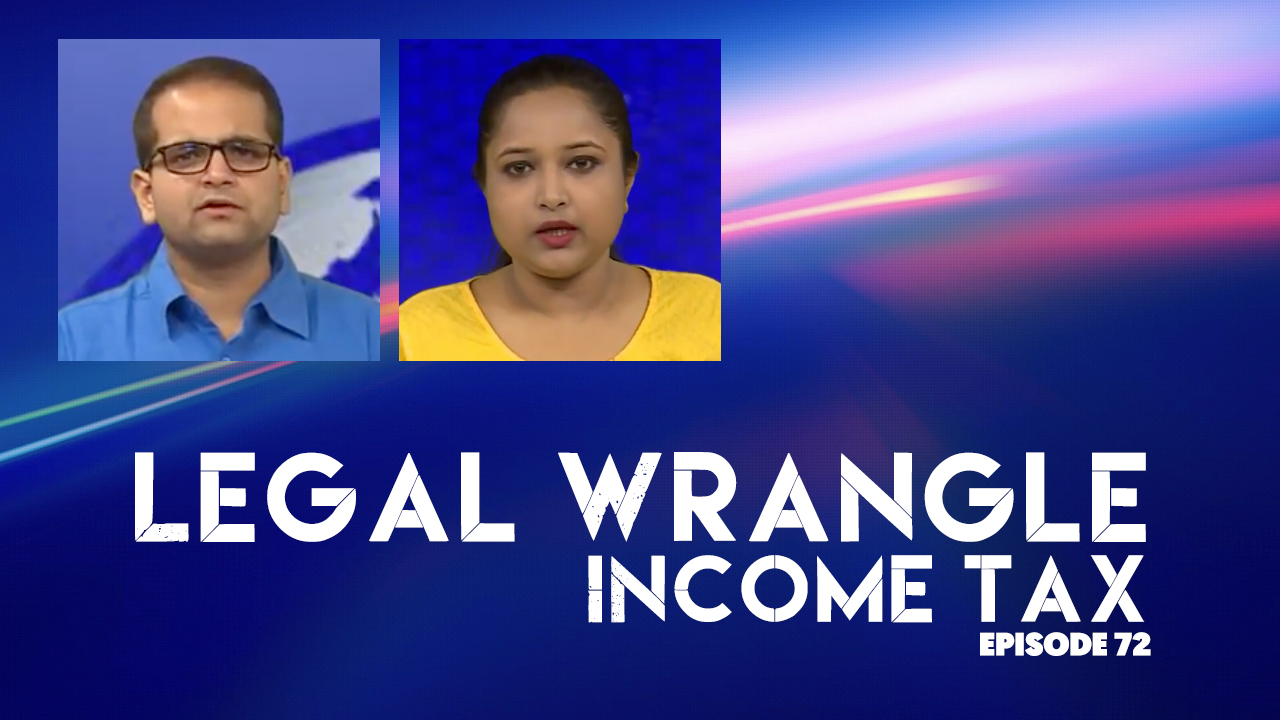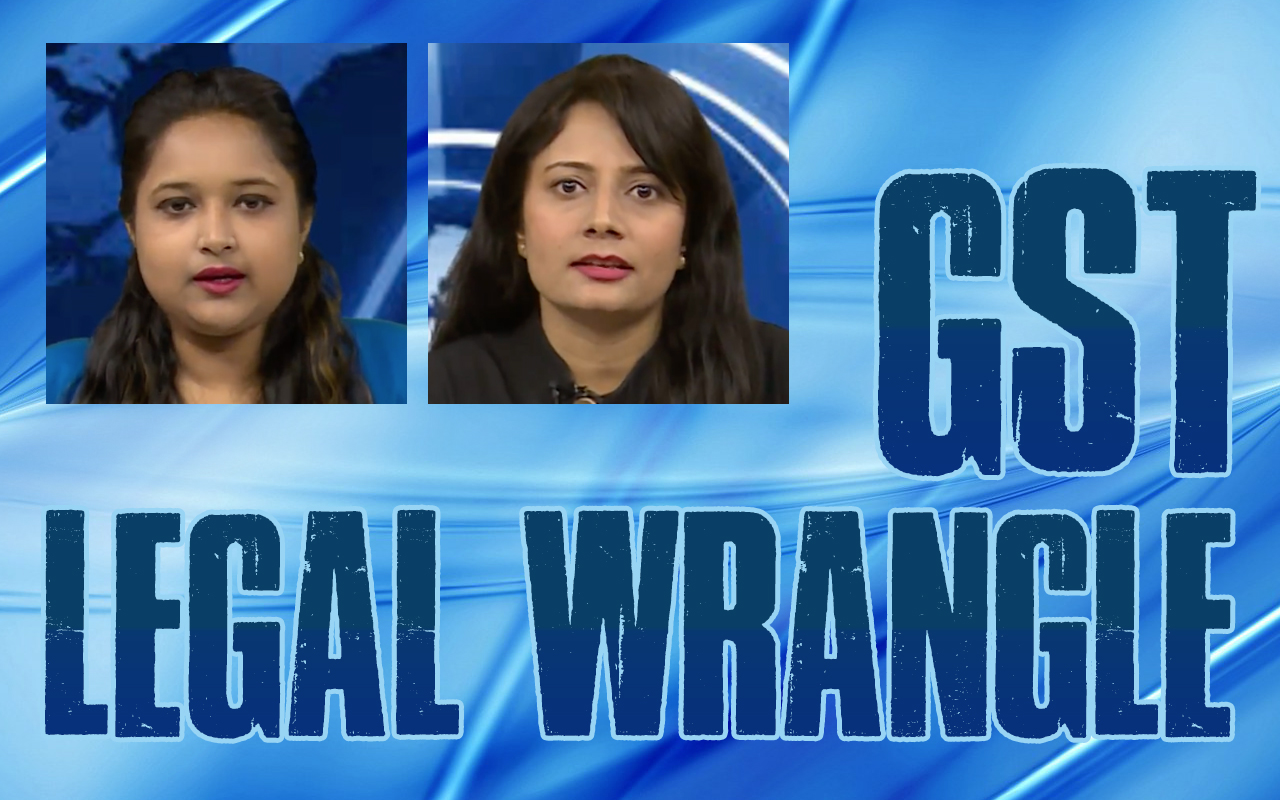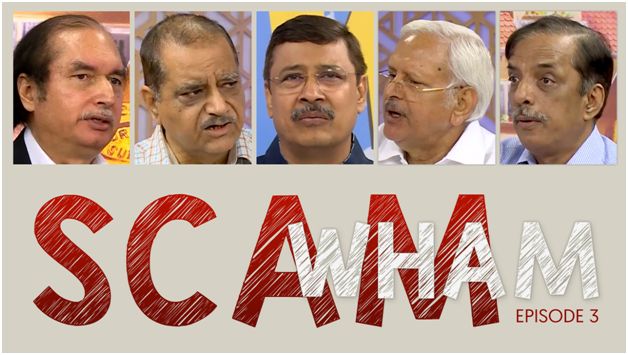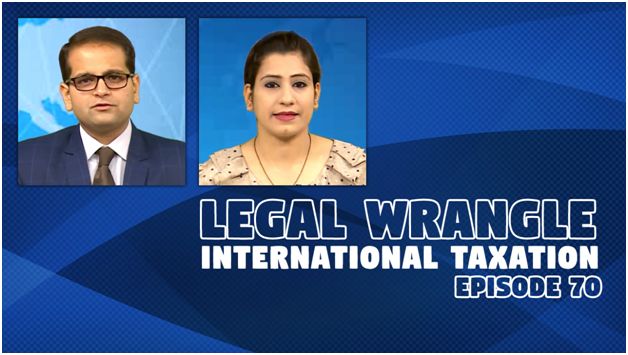SERVICE TAX
Reliance Broadcast Network Ltd Vs CST
ST - Show Cause Notice issued is without any foundation and, therefore, the adjudication order confirming the demand on such cryptic show cause notice, cannot be sustained – impugned order set aside and appeal allowed: CESTAT [para 4] - Appeal allowed: MUMBAI CESTAT
Truworth Impex Pvt Ltd Vs CCE
ST - Assessee engaged in providing various services during period 01/10/2004 to 28/02/2009 - In terms of arrangement with various clients, assessee provided various renovation, restoration, maintenance work with reference to various buildings like hotels, hospitals - Revenue entertained a view that assessee did not discharge due service tax on their activity - The main dispute is with reference to correct taxable category of services provided by assessee - Assessee have provided a variety of service which are essentially with reference to restoration of bathrooms, swimming pools, floors, maintenance of marble floors, granite, deep cleaning of floor, polishing and honing of various hotel facilities and hospitals - A brief of some of sample work orders/contracts were also reproduced by Original Authority - Same was perused alongwith applicable statutory entry relevant to construction services w.e.f. 10/09/2004 - The relevant clause of construction services in terms of Section 65 (3a) of FA, 1994 is "repair, alteration or restoration of, or similar services in relation to building or civil structure" - All the grounds raised by assessee regarding nature of service and correct classification have been duly addressed by Original Authority - There is no substantial or crucial aspect which was left un-addressed - There is no factual or legal basis to interfere with said findings.
Assessee contested impugned order with reference to payment of 6% / 8% on value of exempted services in terms of Rule 6 (3) (i) of CCR, 2004 - Assessee have deposited whole of Cenvat credit alongwith interest for delayed payment - As such, it should be considered that they have not availed such credit to attract the rigorous of Rule 6 (3) - Supreme Court in Chandrapur Magnet Wires (P) Ltd. 2002-TIOL-41-SC-CX held that when disputed credit amount was reversed it should be construed that said credit was not availed and benefit available on such non-availment should be extended - The said legal ratio has been followed in various decisions of High Courts and Tribunal - A reference can be made to a recent decision 2016-TIOL-2692-CESTAT-DEL - Accordingly, demand for said amount for violation of Rule 6 (3) is not sustainable - The penalty relevant to said dispute is also set aside - Regarding assessee's contention on limitation, Tribunal is not in agreement with the plea of assessee that they have not discharged service tax liability based on their bonafide understanding: CESTAT - Appeal partly allowed: DELHI CESTAT
Netapp India Pvt Ltd Vs CCE
ST - Interest on delayed refund - Assessee filed the refund claim seeking refund of unutilized CENVAT credit on input services used for providing output services exported under Rule 5 of CCR, 2004 r/w Notfn 27/2012 -CE(NT) - Same was partially sanctioned - The present appeal has been filed by assessee seeking interest on the already sanctioned amount by original authority - Apex Court in case of Ranbaxy Laboratories Ltd. 2011-TIOL-105-SC-CX has upheld grant of interest in case of late disbursal of refund from the expiry of three months of refund application till refund is granted and not from the date of order of refund - Circular No. 670/61/2002-CX issued by CBEC had clarified that the provisions of Section 11BB of the Central Excise Act gets automatically attracted for any refund sanctioned beyond a period of three months - Therefore, in view of settled position of law which has been settled by Supreme Court in said case, impugned order is not sustainable in law and same is set aside: CESTAT - Appeals allowed: BANGALORE CESTAT
A B Hotels Ltd Vs CST
ST - Assessee leased out various commercial space in their building to others - This is apparently a renting out of immovable property service, for this they have entered into three different agreements - The question for decision is whether the consideration identified with reference to maintenance of common facilities like power supply, lift and common area, can be separately taxed under maintenance or repair service - Upon perusal of these agreements, it is clear that the primary object and reasons for these agreements are for the lessee to use the allotted space and to facilitate a proper usage of such leased out space, it is necessary for assessee to provide all the required common facilities - Though there were arrangements through separate agreements, considerations under different headings, which are attributable to maintenance and repair and other activities are in essence with reference to leasing out the property of assessee - It cannot be said that rental consideration received by assessee alone can be taxed under renting of immovable property service - The other charges collected for common facilities are essentially forming part of leasing service, without which said leased agreements, of leasing out and usage of leased out property is not possible - Accordingly, whole consideration is with reference to leasing out of commercial property and is rightly to be taxed as renting of immovable property w.e.f. 1.6.2007 - A portion of consideration for such renting cannot be taxed prior to 1.6.2007 under a heading of maintenance or repair service.
On the second issue regarding service tax liability on IPR service, tax liability is on transfer of such IPR - The said transfer admittedly happened through a MOU - The considerations received periodically does not make the service as a continuing service - This position is upheld by Tribunal in Reliance Industries Ltd. 2016-TIOL-1654-CESTAT-MUM and Denso Haryana Pvt. Ltd. 2015-TIOL-2649-CESTAT-DEL - Accordingly, when the taxable event happened prior to the tax entry was introduced in law, no tax liability can be confirmed against assessee - I mpugned order cannot be sustained: CESTAT - Appeals allowed: DELHI CESTAT
CENTRAL EXCISE
Spykar Lifestyles Pvt Ltd Vs CCE
CX - Once the amount of CENVAT credit allegedly irregularly availed is admittedly reversed, interest is chargeable as piggyback, appellant cannot get relief on ground of limitation - in respect of amount payable under the provision of Rule 6(3A), interest is legally chargeable in terms of Rule 6(3A)(e) -- although interest is not chargeable u/r 14 and section 11AA, it cannot by any stretch of imagination be accepted that interest is also not payable u/r 6(3A)(e) of CCR, 2004 else the provision would be stand redundant and which is not the intention of legislature -- appellant is liable to pay interest on the amount of Rs.81,75,709/- - impugned order upheld and appeal is dismissed: CESTAT [para 4] - Appeal dismissed: MUMBAI CESTAT
2018-TIOL-1301-CESTAT-MAD
Jeevan Diesels and Electricals Ltd Vs CCE
CX - the assessee company availed Cenvat credit on input goods - The Department alleged that the assessee availed excess credit & raised duty demand for recovery of the same - On being pointed out, while the assessee reversed the credit availed, it did not reverse interest payable on the same - Thereupon, SCN was issued by invoking extended limitation - However, the assessee was unable to appear for hearing & argue its case due to which the Tribunal dismissed its appeal -
Held - Considering the Tribunal's order, the assessee's appeal was not dismissed for non-appearance - In fact the assessee's appeal was dismissed on merits - The assessee was unable to show that the excess credit availed had not been utilized - Hence it was liable to reverse the interest amount as well - Such reversal ought to have been made without waiting for an SCN & so the liability to pay interest continues till duty is paid - Hence there is no hiding from interest liability in such cases - Tribunal order is sustained: CESTAT (Para 2,5) - Application Dismissed: CHENNAI CESTAT
2018-TIOL-1300-CESTAT-CHD
Micro Turners Vs CCE
CX - Assessee is manufacturer of auto parts and had purchased inputs from a first stage dealer M/s Regal Metal & Ferro Alloys - SCN has been issued on the ground that assessee have availed irregular Cenvat credit on the basis of invoices issued by first stage dealer - Said dealer had purchased wire rods and passed on Cenvat credit irregularly to their buyers by changing description of goods to Tariff sub-heading 7214.90, which indicates that said dealer sold the steel rods to assessee instead of wire rods - It is thus evident that goods issued from manufacturer were wire rods and first stage dealer had changed the description of goods from wire rods to steel rods without actually supplying the goods manufactured by assessee - This is supported by statement of Sh. Jagdish Sharma that they did not receive the wire rods in their factory premises.
Assessee have pleaded on limitation - Search and seizure were made on 03.04.2007 and investigation was complete by June 2007, but SCN was issued on 25.03.2010 - The contention of assessee is not legally sustainable because they had clearly suppressed the facts, which came to light only during the investigation - Once there is element of suppression, the Department is well within its powers to issue a SCN within 5 years of relevant date i.e. filing of return of March, 2007 - Hence, extended period of limitation has been correctly applied: CESTAT - Appeal dismissed: CHANDIGARH CESTAT
CX - Assessee is located in State of Jammu & Kashmir and availing exemption under Notfn 01/2010-CE and complied with conditions of said Notfn - Further, as per condition 5(d) of said Notfn, the assessee is required to submit a statement of total duty payable and as well as duty paid by utilization of credit or otherwise by 15th day of subsequent month - The Commissioner (A) has denied the benefit of Notfn - Admittedly, the assessee did not comply with condition of notfn, therefore, Tribunal have to see whether the condition is an substantive or procedural lapse on the part of assessee - Similar conditions have been enumerated in Notfn 32/99-CE and Notfn 33/99-CE - As conditions 2C of the Notfn 32/99-CE and Notfn 33/99-CE are similar with condition 5(d) of Notfn 01/2010-CE - This Tribunal has examined the Notfn 32/99-CE and Notfn 33/99-CE in the case of Vinay Cement Limited - As the said issue has been examined by several authorities including Apex Court wherein it has been held that condition 5(d) of Notfn 01/2010-CE is similar to other notifications which are in the manner of procedure to be followed by assessee wherein the assessee is required to file certain documents before a particular date - If such documents are filed with a delay, in that circumstance, it is only a procedural lapse on the part of assessee, the benefit of notfn cannot be to the assessee - In view of said observations, condition 5 (d) of Notfn 01/2010-CE is procedural in nature and for complying with said condition with a delay cannot be fatal to assessee - In that circumstance, self credit taken by assessee cannot be denied: CESTAT - Appeals allowed: CHANDIGARH CESTAT
Viveklene Industries Ltd Vs CCE & ST
CX - Main assessee was running an independent textile process house which was visited by Central Excise Officers and records were drawn with Panchnama - On completion of investigation, a SCN was issued to main assessee and the other individual for demand of duty based upon private booklet details and also for imposition of penalty - The case of Revenue is based upon such private booklet, panchanma i.e. at site wherein it is indicated that there was shortage of finished goods; confessional statement of one Shri Sharma - Both the lower authorities have placed their findings that these record only to lead that there was clandestine removal of goods - It can be noticed from second specimen of booklet that entries did not indicate that they were of 2001 - The dates indicated wherein only states the date and month - On deeper perusal of the statement recorded of Shri Sharma, it is found that he has not admitted that this booklet is pertaining to year 2001 - He has only stated that this booklet was maintained by one of individuals who was relative of Director - In the absence of any other evidence more specifically the positive evidence establishing evasion and the absence of any other material reflecting purchase of excessive raw material, excess consumption of resources, the demand of clandestine removal falls miserably - Ratio of judgment of Gujarat High Court in case of Saakeen Alloys 2014-TIOL-739-HC-AHM-CX would clearly apply in the case in hand - Respectfully following the same, charge of clandestine removal of goods and consequent penalty on Director does not stand scrutiny of the law and the demand is set aside - Since the demand is set aside, interest liability and penalty on main assessee as well on individual does not survive: CESTAT - Assessee's appeal allowed: AHMEDABAD CESTAT
CUSTOMS
Cus - Assessee imported certain goods described as Reflective Sheeting and Luminescent Film and filed bill of entry - After examining the consignment, Customs Authorities were of the opinion that there was mis-declaration in quantity of goods since 578 rolls of the material were found as against 577 rolls, declared in the Bill of Entry - It further appeared that the goods were mis-declared in terms of value also - In respect of 32 Bills of Entry pertaining to imports, certain documents were recovered during search from the laptop and mobiles pones from which department has recovered the invoices/commercial invoices pertaining to goods imported under these Bills of Entry - Such invoices indicate that the goods were procured by assessee from the foreign supplier at significantly higher prices than what has been declared to department at the time of filing Bills of Entry - It further has been admitted by Shri Sumit Chawla, son of proprietor, that these invoices, printed-out from laptop/mobile phone, reflect the correct value of imports - Adjudicating authority has rightly rejected the transaction value of goods imported under 32 Bills of Entry, in terms of Rule 12 of CVR, 2007 - In fact, Explanation (f) to Rule 12 ibid specifically provides for rejection of the transaction value in the case of fraud or manipulated documents as in the present case - There is no infirmity on the part of adjudicating authority in re-determining the value of past imported goods on the basis of such invoices - There is no need for Revenue to collect evidence in form of contemporaneous imports: CESTAT - Appeal dismissed: DELHI CESTAT
Pavas Polychem Pvt Ltd Vs CC
Cus - Assessee filed two Bills of Entry by declaring the goods imported by them as "Natural Calcite Powder" claiming classification of same under CTH-25309030 - It appeared to Revenue that the goods imported were not Natural Calcite Powder but they were Processed Calcium Carbonate Powder and therefore, the goods were detained and samples were drawn and sent to Central Revenue Control Library, New Delhi - The test report was issued by CRCL indicating that the samples were Processed Calcium Carbonate Powder - Original Authority confirmed all the proposals in SCN including confirmation of demand, confiscation and imposed penalty on assessee and on Shri Pawan Khatri (Director) - In so far as confirmation of demand, re-classification, enhancement of value, confiscation, imposition of penalty and redemption fine on past clearances in impugned order is concerned, the same set aside by relying on the precedent decision of this Tribunal in case of Penshibao Wang P. Ltd. 2016-TIOL-1583-CESTAT-MAD - In so far as, the O-I-O in respect of said two Bills of Entry is concerned, Circular dated 16/11/2017 clearly indicates that National Metallurgical Laboratory (NML), Jamshedpur & Chennai were identified as designated laboratory for testing of Natural Calcite Powder - In case of M/s Rathi Enterprises 2015-TIOL-691-CESTAT-DEL , Tribunal had held that CRCL did not have facility to test the samples and therefore, the test report given by CRCL is in doubt and that assessee had right to ask retest of samples from any other laboratory other than CRCL - Therefore, the related confiscation and imposition of penalty and re-determination of value of consignments related to Bills of Entry is not sustainable - In result, impugned order set aside: CESTAT |




 By KK Sharma
By KK Sharma 



